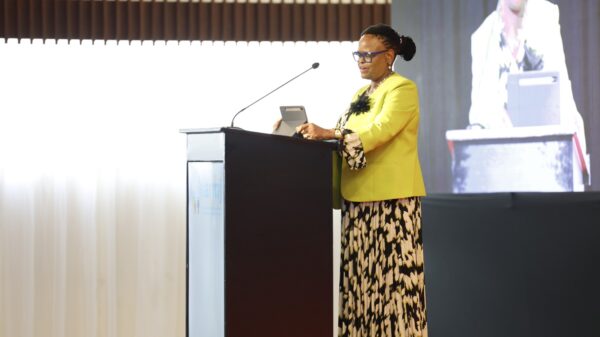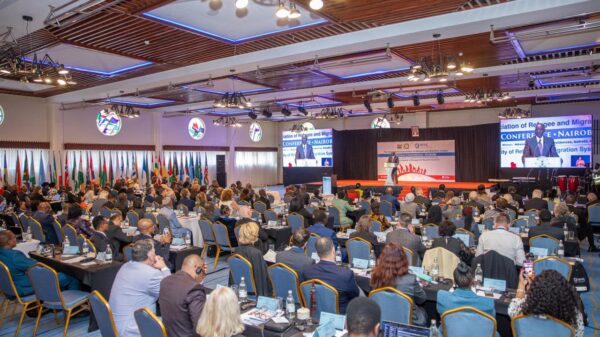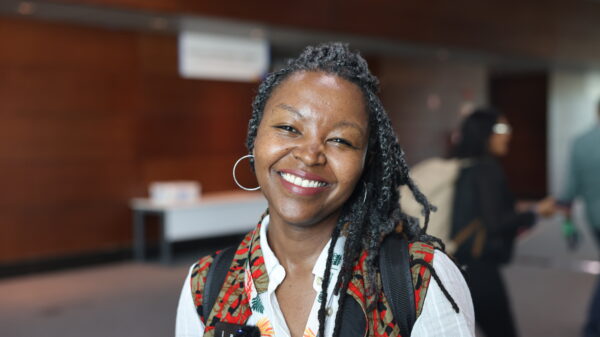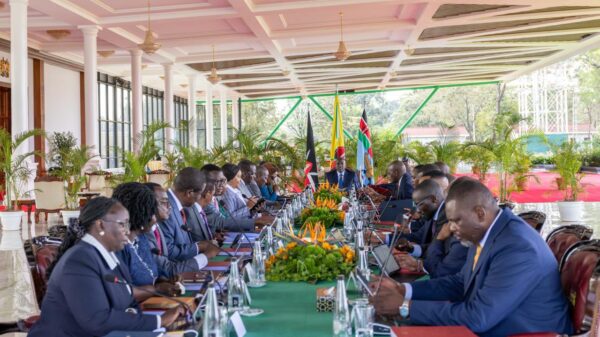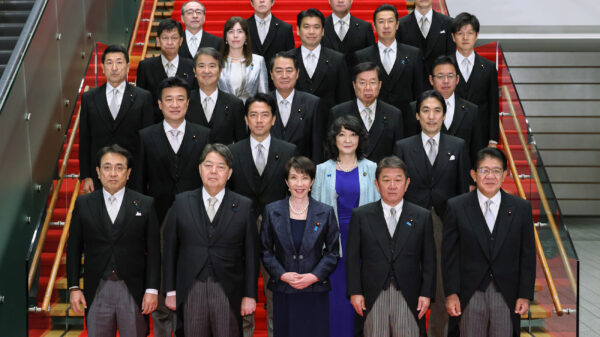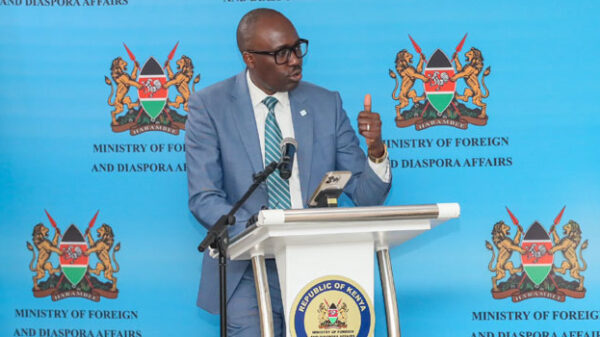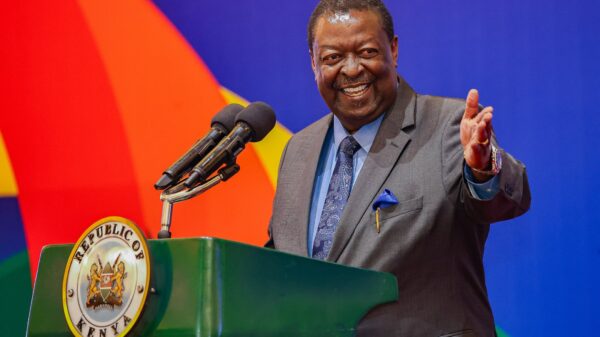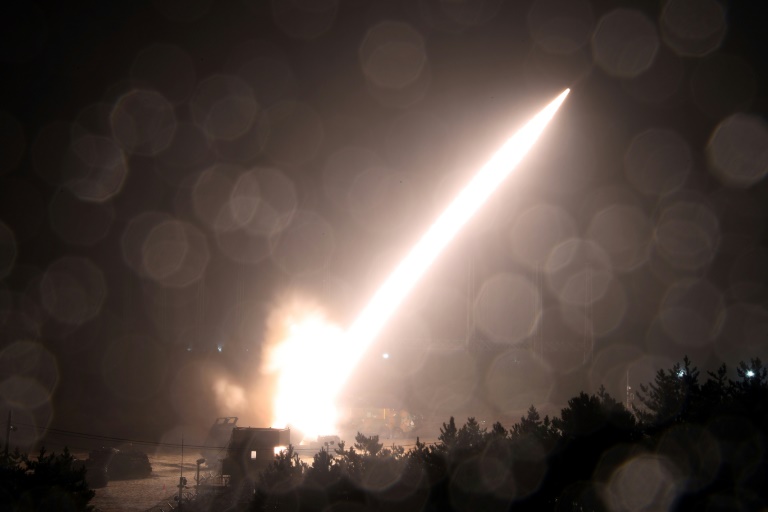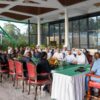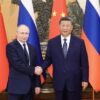Seoul (AFP), Oct 9 – North Korea fired two ballistic missiles into the sea early Sunday, Seoul’s military said, the seventh such launch in two weeks, just hours after a nuclear-powered American aircraft carrier wrapped up joint drills off the Korean peninsula.
Seoul, Tokyo and Washington have ramped up combined naval exercises in recent weeks, infuriating Pyongyang, which sees them as rehearsals for invasion and justifies its blitz of missile launches as necessary “countermeasures”.
With talks long stalled, Pyongyang has doubled down on its banned weapons programmes, firing an intermediate range ballistic missile over Japan last week, with officials and analysts warning it has completed preparations for another nuclear test.
South Korea’s military said Sunday it had “detected two short-range ballistic missiles between 0148 and 0158 (1648-1658 GMT) fired from the Munchon area in Kangwon province towards the East Sea”, referring to the body of water also known as the Sea of Japan.
The missiles “flew approximately 350 kilometres (217 miles) at an altitude of 90 kilometres”, Seoul’s Joint Chiefs of Staff said in a statement, calling the launches a “serious provocation”.
Tokyo also confirmed the launches, with the coast guard saying the missiles had landed outside the Japan’s exclusive economic zone.
Japanese senior vice defence minister Toshiro Ino said Tokyo was analysising the missiles, adding that “either one of them has the possibility of being a submarine-launched ballistic missile (SLBM)”.
Seoul said last month it had detected signs the North was preparing to fire an SLBM, a weapon Pyongyang last tested in May.
The US military’s Indo-Pacific Command said in a statement that they were “consulting closely with our allies and partners”, adding that the launch highlighted the “destabilising” nature of North Korea’s missile programmes.
– Drills, drills, drills –
North Korea’s missile tests usually aim to develop new capabilities, but its recent launches, “from different locations at different times of day, may be intended to demonstrate military readiness,” said Leif-Eric Easley, a professor at Ewha University in Seoul.
“This is not merely for self-defense and deterrence as Pyongyang claims,” Easley told AFP.
“The Kim regime is trying to coerce Seoul, Tokyo and Washington to abandon their trilateral security cooperation.”
The recent spate of launches is part of a record year of weapons tests by isolated North Korea, which leader Kim Jong Un last month declared an “irreversible” nuclear power, effectively ending the possibility of denuclearisation talks.
In response to the growing threat from the North, Seoul, Tokyo and Washington have ramped up joint military drills, including with the USS Ronald Reagan aircraft carrier and its strike group, which was redeployed to the area last week.
On Thursday Seoul’s military said it had scrambled 30 fighter jets after 12 North Korean warplanes staged a rare formation flight and apparant air-to-surface firing drills.
Go Myong-hyun, a researcher at the Asan Institute for Policy Studies, said North Korea was trying to claim that the nature of its sanctions-busting weapons tests were the same as the defensive joint drills between the allies.
“North Korea is trying to give equivalence through its continued missile launches,” he told AFP.
– No new sanctions –
Analysts say Pyongyang is emboldened to continue its weapons testing, confident that gridlock at the United Nations will protect it from further sanctions.
Last week, the United Nations Security Council held an emergency meeting to discuss Pyongyang’s launch over Japan, which officials and analysts said was a Hwasong-12 that likely travelled the longest horizontal distance of any North Korean test.
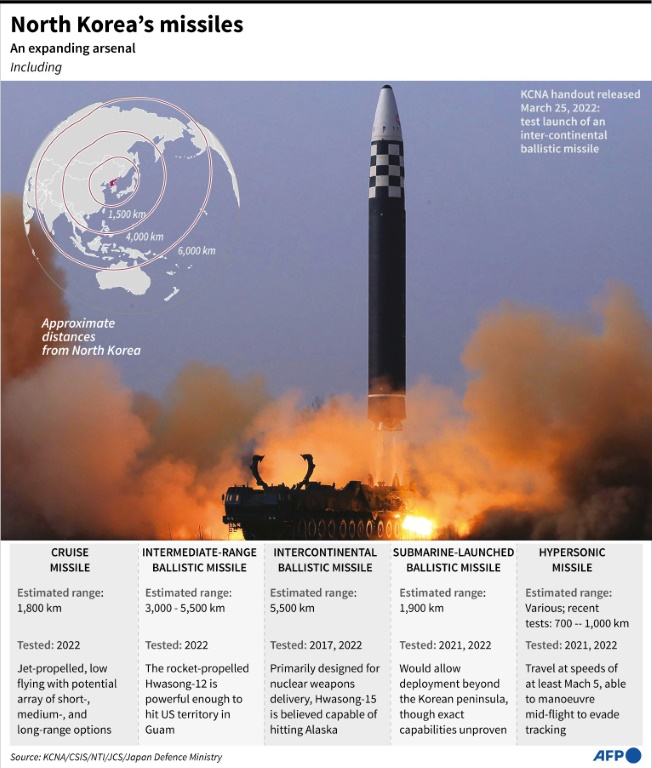
Factfile on North Korea’s missile arsenal. © AFP / Janis LATVELS
But at the meeting, North Korea’s longtime ally and economic benefactor China blamed Washington for provoking the spate of launches, with Deputy Chinese ambassador to the UN Geng Shuang accusing the United States of “poisoning the regional security environment”.
US ambassador to the UN Linda Thomas-Greenfield called for the “strengthening” of existing sanctions on North Korea, something China and Russia vetoed in May.
The council has been divided on responding to Pyongyang’s nuclear ambitions for months, with Russia and China on the sympathetic side and the rest of the council pushing for punishment.
“To Kim’s benefit, there are other contingencies occupying the slate of US policymakers, which involve his two primary backers, Russia and China,” Soo Kim, an analyst at the RAND Corporation, told AFP.
“So we’re not likely to see Moscow or Beijing supporting the US on the North Korea issue anytime soon,” she said. “If anything, the two countries may have an even greater motivation to not help the US right now.”
Officials in Seoul and Washington have been warning for months that Pyongyang will also conduct another nuclear test, likely after China’s Communist Party Congress later this month.
“A flurry of missile tests like the one we’ve seen could indicate a build-up to a nuclear test, but predicting the timing with any precision is quite challenging,” US-based security analyst Ankit Panda told AFP.
“A test can take place almost immediately after Kim orders one.”


